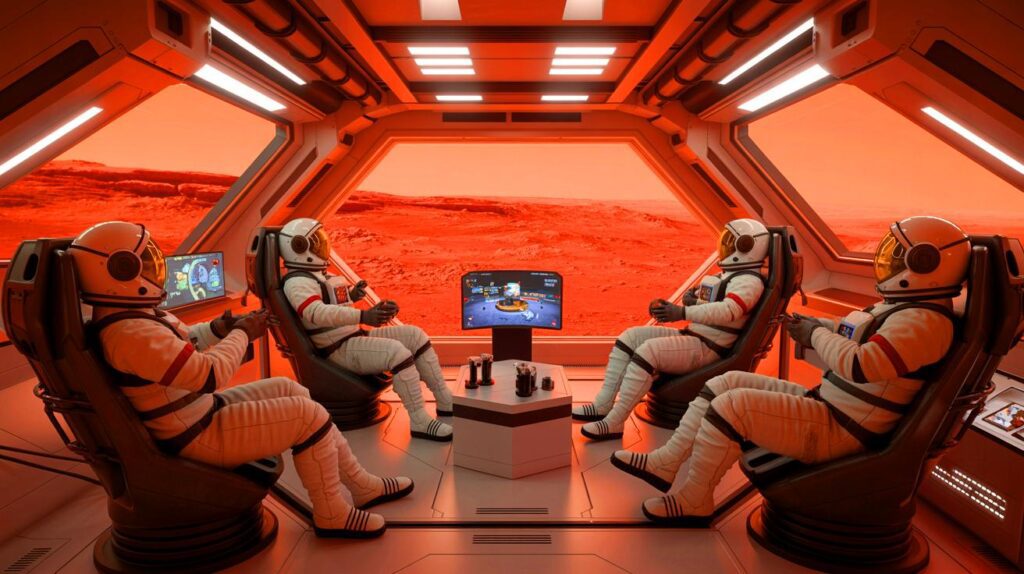NASA conducted a groundbreaking simulation where four volunteers lived in a Mars-like habitat for over a year, testing conditions for future manned missions to the Red Planet. The habitat, built at Johnson Space Center, reflected Mars’ environment by providing limited resources and delayed communication with “Earth.” This mission, part of the Crew Health and Performance Exploration Analog (Chapea) program, aimed to study human resilience in extreme isolation.
Participants balanced scientific tasks with leisure activities, such as video games, reading, and movies, to manage stress and boredom. Leisure was found crucial for mental well-being, helping reduce the monotony of confined living. Strategy games, in particular, served as both entertainment and cognitive training, enhancing critical thinking and decision-making necessary for space missions.
The insights gained from this mission will inform future NASA endeavors, including plans for a second Chapea mission in 2025 and eventual crewed missions to Mars in the 2030s. Understanding the balance between work and leisure in space is essential for astronaut happiness and performance, underscoring the importance of psychological preparation for interplanetary exploration.
Source link


